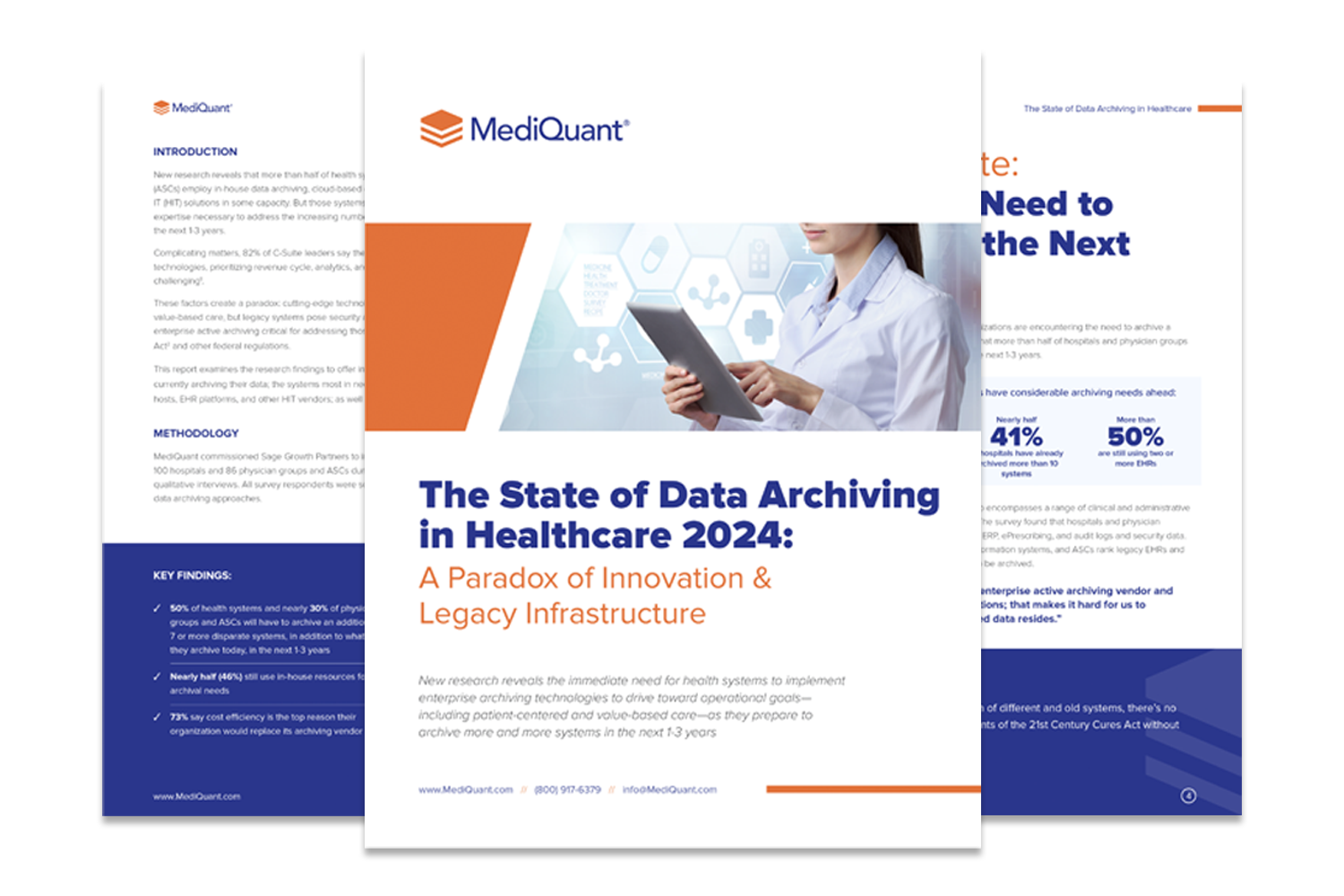Missouri Delta Medical Center was no stranger to Electronic Health Record (EHR) transitions, but archiving was another story. With two legacy systems and millions in patient Accounts Receivable (AR) to work down, they put their trust in MediQuant. Five years and more than $11 million in collections later, they are glad they did.
Profile
Missouri Delta Medical Center is an independent, non-profit community hospital providing comprehensive medical care to the people of Southeast Missouri since 1948. With over 84 physicians specializing in more than 25 medical services, its focus is on personalized, compassionate care. It has been recognized with five stars in overall performance from Medicare Hospital Compare, the Gold Award from TMF Health Quality Institute and a Top Performer on Key Quality Measure by the Join Commission that accredits U.S. healthcare organizations.
The Challenge
Greg Carda, Missouri Delta Chief Financial Officer, leads a team of about 70 professionals. His oversight responsibilities include purchasing, medical records and accounting. Carda’s chief focus is revenue cycle, which he calls the lifeline of the hospital, explaining, “Efficient, effective revenue cycle management is the key to our survival.”
In fact, cost played a significant role in 2017, when Missouri Delta was undergoing a second transition to a new EHR, Cerner Millennium®, and was shopping for an archiving partner. The hospital had two legacy systems that managed hospital and physician patient accounting, respectively. “With the new and improved EHR, we knew our IT costs were going to skyrocket. We could not afford to keep our legacy systems running, as we had done in the past, so we needed an archiving partner that offered the right experience and the right solutions at the right price,” said Carda.
The selection process was clear. MediQuant had strong references, particularly from Cerner itself. Carda also felt they asked the right questions, and custom-tailored their strategies to meet the hospital’s unique challenges. This helped establish a strong value proposition, according to Carda. “MediQuant asked about our needs, such as what kind of state- and national-level surveys and reports we created, and ensured we would have critical data and reporting at go-live,” he said. Following what Carda called an almost “effortless” contracting process, MediQuant and Missouri Delta went to work.
The Solution
Missouri Delta found its solution in DataArk® , MediQuant’s flagship active archive platform. DataArk allows seamless, secure and compliant single-click access to functioning legacy data within the hospital’s current active user environment. It manages patient ARs – dropping bills, posting payments, adding notes and actively capturing revenue that might otherwise be forfeited.
Importantly, MediQuant also configured DataArk to create custom reports for Missouri Delta, such as the Disproportionate Share Hospital (DSH) report, a requirement for compensation. According to Carda, “DSH involves huge amounts of data that captures every uninsured and Medicaid patient we see in a year. It’s a large undertaking.”
Asked what he likes most about DataArk, Carda responded, “DataArk is easy to use. There is virtually no learning curve, which means you have no fear in trying all the bells and whistles it offers. Plus, we went from evaluation to implementation in just four months.”
Carda credits MediQuant’s implementation manager for her part in both the stress-free startup and successes to date. “We continuously met our deadlines and lacked for nothing because she genuinely wanted to help us. And she conducted meetings so effectively that people were happy to participate.”
The Results
The hospital continues to write down ARs. In the last 18 months alone, it collected $230,000 of what could have been lost revenue.
“Thanks to MediQuant and DataArk, we were able to shut down two legacy systems, avoiding prohibitive fees to support them and the personnel time to manage them.” In addition, Carda said, “We recovered over $11 million in accounts receivable in less than five years.”
Advice For Others
Carda had this advice to offer his industry colleagues who were making the move to a new EHR and needed to archive data:
• Build relevant custom reports on the front end as was done for us. That turned out to be a lifesaver.
• Hire an archiving vendor you can trust and then trust them. Except for our revenue cycle director, most of us had never operated a legacy system archive, so our best judgment was to listen to MediQuant. Luckily, they steered us down the right path.
• Keep running for revenue. There was debate as to how long to keep DataArk running. We have kept it going for almost five years and have realized the value the entire time.
“MediQuant asked the right questions and custom-tailored their strategies to meet our unique challenges.”


